|
|
Happenings
at the Institute

The
Golden Jubilee Reunion Batch-of-1963


The Golden Jubilee
Reunion Batch-of-1963, More than 40 alumni participated
in the reunion alongwith their families. The reunion was inaugurated
by Prof. G. D. Agarwal, former faculty member, Department of Civil
and Environmental Engineering, IIT Kanpur (also known as Swami
Gyan Swarup Sanand), Prof. Indranil Manna (Director), Prof. M.
Anandakrishnan, (Chairman, board of governors), Prof. Manindra
Agrawal (Dean, Faculty Affairs) and Prof. Sudhir Misra (Secretary,
Alumni Association).
On 8th March the alumni visited the laboratories, the library,
the different departments and the new buildings in the campus.
They also held meetings with the Deans and the senior professors.
Almost all the alumni felt there was a need to improve the quality
of education and to raise the standard of research in order to
compete with global Institutions. There was also a welcome session
with the Director, Deputy Director, Deans and faculty members.
Many alumni lauded the positive changes like the improved infrastructure
at IITK over the years.
The alumni expressed their concern over the rising pollution in
the Ganga and have appealed to the citizens to check it by any
means. They were happy to learn that the government has given
the job of preparing the Ganga River Basin Management Plan to
llTK scientists. They urged the scientists to prepare the plan
as early as possible so that the work to clean the river and keep
it pollution free could be started.
On 9th March Prof. Anandakrishnan released the coffee table book
“The frontier batch – the early days of IIT Kanpur”.
After this the alumni were taken for a campus tour. This was followed
by a picnic lunch at the new SAC (Students’ Activity Centre)
food court.
In the evening the former students interacted with the current
students in Café Coffee Day (CCD) and in the Faculty Lounge
68 (contributed by the 1963 batch). The former students assured
all possible assistance to those who sought their guidance and
mentorship. They also shared with the students the experience
of their stay on the campus, their view of the campus now, their
most memorable moments of campus days and their life journey after
leaving the campus. The current students talked about the cultural
and sports activities conducted by the students’ gymkhana,
the inter IIT sports meet, the new Students’ Activity Centre
(SAC) and the planetarium being constructed. The alumni gave them
useful tips for meeting global challenges and for becoming successful
entrepreneurs. They shared their experiences and success stories
and passed on the wisdom that students should never get dejected
if they failed in their ventures. In the evening the batch-of-1963
performed a song titled “Tribute to our alma mater IIT Kanpur”
with the Music Club of IIT Kanpur. The lyrics of this song were
written by Mr. Pravin Gupta (BT/ME/63). The Music Club members
and many alumni sang this beautiful song in chorus, while the
alumni spouses presented a graceful dance to accompany the song.
On the last day the alumni had breakfast in Hall-1 and then went
for a trip to Bithoor. The reunion came to an end with lunch and
a felicitation ceremony at the Director's residence. The alumni
expressed their willingness to contribute to some major project
of the Institute as 'Guru-Dakshina.'



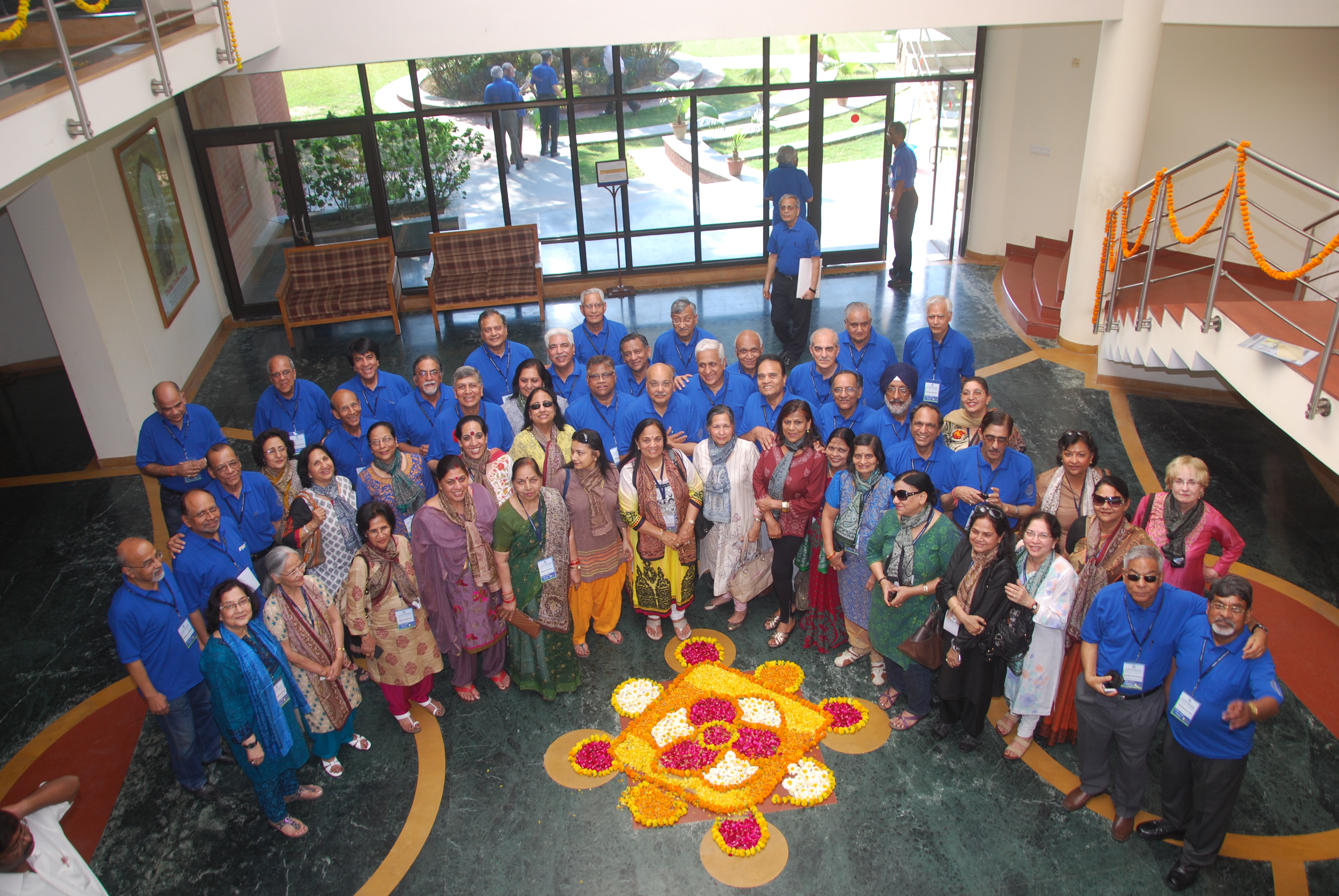
|
TOP
TOP
Distinguished
Lectures

Petro-Tel
Distinguished Lecture: Prof. K. Vijay Raghavan,
Secretary, Department of Biotechnology (DBT) gave a talk titled
“Neural stem cells in the making of the brain” on 27th
February, 2013. In his talk Prof. Raghavan said that a fly landing
on a ripe banana negotiates multiple sensory inputs- from odors,
its landscape, sounds, the wind, your swatter- and makes an exquisite
landing. The insect’s ability to deal with the real-world
is assembled before it emerges from its pupal case, raising the
natural question about how this developmental sophistication is
achieved. He said that paring a behavior, his research group studies
how each unit is made and connected to create a coordinated marvel.
He said that regional specialization is one unit of examination:
what, for example, makes the flight system different from the walking
system? At the next level, specialized cell-types can be examined.
At the final step, he said that they examine how the units, sense
organs, nerves, muscles and tendons, connect to make a circuit that
behaves in a particular way. At each level of examination, genes
are the indispensable scalpels telling us the identity, function,
and placement of ‘nuts, bolts and glue’ in the process
of regional, cellular and circuit specialization. He first spoke
about how animal behavior is put in place from the earliest stages
of development, and then showed how the new results in the development,
anatomy and function of neuronal stem cell lineages in the brain
of the fly are important for modulating specific behavioral responses.
 About
the Speaker: Prof. Vijay Raghavan obtained his BTech
in chemical engineering from IIT Kanpur in 1975 and obtained his
PhD in Molecular Biology from Tata Institute in Bombay in 1983.
After working in California Institute of Technology, USA as a Postdoctoral
Research Fellow and Senior Research Fellow, he returned to India
in 1988 and worked with Obaid Siddiqi and other colleagues to start
the National Centre for Biological Sciences (NCBS), which has developed
into an internationally recognized laboratory for modern biology.
NCBS has worked with the Indian Government to expand its campus
to add in STEM (science, technology, engineering, and mathematics),
a major new institute for regenerative biology of which Prof. Raghavan
was the interim Director. He also developed a research program in
muscle and neural development using Drosophila. The Vijay Raghavan
lab embarked on a study of motor neuron development and differentiation
in collaboration with Prof. Darren Williams at King’s College
London, the result of which led to an understanding of the birth
order and dendritic positioning in the central nervous system. His
laboratory continues to work in this area, in integrating the emergence
of neural connectivity with function. About
the Speaker: Prof. Vijay Raghavan obtained his BTech
in chemical engineering from IIT Kanpur in 1975 and obtained his
PhD in Molecular Biology from Tata Institute in Bombay in 1983.
After working in California Institute of Technology, USA as a Postdoctoral
Research Fellow and Senior Research Fellow, he returned to India
in 1988 and worked with Obaid Siddiqi and other colleagues to start
the National Centre for Biological Sciences (NCBS), which has developed
into an internationally recognized laboratory for modern biology.
NCBS has worked with the Indian Government to expand its campus
to add in STEM (science, technology, engineering, and mathematics),
a major new institute for regenerative biology of which Prof. Raghavan
was the interim Director. He also developed a research program in
muscle and neural development using Drosophila. The Vijay Raghavan
lab embarked on a study of motor neuron development and differentiation
in collaboration with Prof. Darren Williams at King’s College
London, the result of which led to an understanding of the birth
order and dendritic positioning in the central nervous system. His
laboratory continues to work in this area, in integrating the emergence
of neural connectivity with function.
In 1998, Prof. Raghavan received with the Shanti Swarup Bhatnagar
Award. In 2003, he received the Distinguished Alumnus Award of IIT
Kanpur. He also received the Infosys Prize in the life sciences
category in 2009. He has been conferred the prestigious Padma Shri
Award by the Government of India for the year 2013. Since January
2013, Prof. Raghavan is Secretary, Department of Biotechnology,
Government of India.
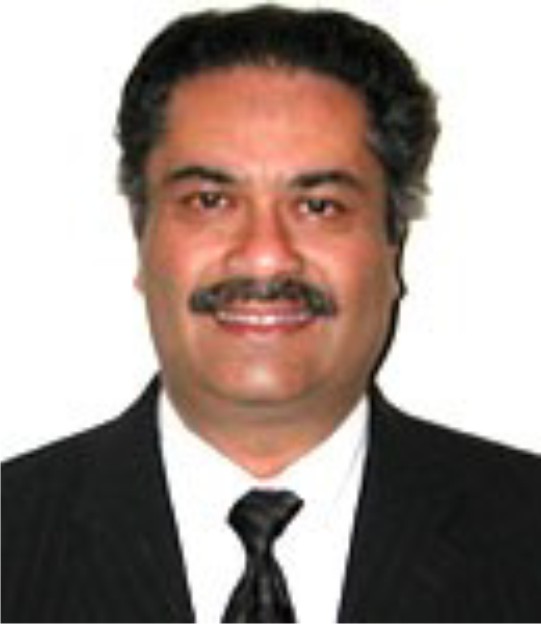 About
the Donor: The PetroTel Distinguished Lecture series
in Chemical Engineering at IIT Kanpur has been made possible by
an endowment from Dr. Anil K. Chopra (B. Tech/ChE/IITK/1976 and
recipient of the IITK Distinguished Alumnus Award, 2010). Dr. Chopra
obtained his PhD from the University of Houston, USA, in 1982. Currently,
Dr. Chopra is the President, CEO and Chairman of PetroTel Inc.,
USA About
the Donor: The PetroTel Distinguished Lecture series
in Chemical Engineering at IIT Kanpur has been made possible by
an endowment from Dr. Anil K. Chopra (B. Tech/ChE/IITK/1976 and
recipient of the IITK Distinguished Alumnus Award, 2010). Dr. Chopra
obtained his PhD from the University of Houston, USA, in 1982. Currently,
Dr. Chopra is the President, CEO and Chairman of PetroTel Inc.,
USA
TOP
C.
N. R. Rao Distinguished lecture: Prof. Debasis Kundu,
Department of Mathematics and Statistics, IIT Kanpur gave a talk
titled “Analyzing Periodic Data: Statistical Perspectives”
on 6th March, 2013. In his talk Prof. Kundu said that we all observe
periodic phenomena everyday in our lives; for instance the daily
temperature of Delhi, or the number of tourists visiting the famous
Taj Mahal, or the ECG data of a normal human being, are clearly
periodic in nature. Sometimes, the observations may not be exactly
periodic due to different reasons, but they may be nearly periodic.
He said that the received data is usually disturbed by various factors.
Due to the random nature of the data, statistical techniques play
an important role in their analysis. Statistics is also used in
the formulation of appropriate models to describe the behavior of
the system, in the development of an appropriate technique for estimation
of model parameters, and for the assessment of model performances.
In his talk he discussed different techniques which have developed
over the last twenty-five years for analyzing periodic data, other
than the standard Fourier analysis.
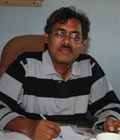 About
the Speaker: Prof. Debasis Kundu
received his BStat in 1982 and MStat in 1984 from the Indian Statistical
Institute. He obtained his PhD in 1989 from Pennsylvania State University,
after which he worked for a year at the University of Texas at Dallas
as a tenure track assistant professor, before joining IIT Kanpur
in 1990. Prof. Kundu is currently the Arun Kumar Chair Professor
and is also the Head of the Department of Mathematics and Statistics.
His research interests include statistical signal processing, univariate
and multivariate probability distributions, statistical computing
and data analysis. Prof. Kundu is a Fellow of the Indian National
Academy of Sciences. He has authored more than 200 research publications
and two books. He is on the editorial board of four international
journals in the field of Statistics. About
the Speaker: Prof. Debasis Kundu
received his BStat in 1982 and MStat in 1984 from the Indian Statistical
Institute. He obtained his PhD in 1989 from Pennsylvania State University,
after which he worked for a year at the University of Texas at Dallas
as a tenure track assistant professor, before joining IIT Kanpur
in 1990. Prof. Kundu is currently the Arun Kumar Chair Professor
and is also the Head of the Department of Mathematics and Statistics.
His research interests include statistical signal processing, univariate
and multivariate probability distributions, statistical computing
and data analysis. Prof. Kundu is a Fellow of the Indian National
Academy of Sciences. He has authored more than 200 research publications
and two books. He is on the editorial board of four international
journals in the field of Statistics.
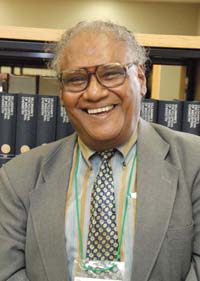 About
the Donor: Prof. Chintamani Nagesa Ramachandra Rao
was born on June 30, 1934 in Bangalore. He completed his PhD in
1958 from Purdue University. From 1963-76, he was a Professor of
Chemistry at IITK. From 1984-89, he was the Director of IISC Bangalore.
Dr. Rao has published more than 45 books and 1500 research papers
with more than 42,000 total citations. He was appointed as Chair
of the Scientific Advisory Council to the Indian Prime Minister
in 2005. He has won several international prizes and is a foreign
member of the US National Academy of Sciences, the American Academy
of Arts and Sciences and of the Royal Society (London). He has also
been given the high honors of Padma Shri and Padma Vibhushan by
the About
the Donor: Prof. Chintamani Nagesa Ramachandra Rao
was born on June 30, 1934 in Bangalore. He completed his PhD in
1958 from Purdue University. From 1963-76, he was a Professor of
Chemistry at IITK. From 1984-89, he was the Director of IISC Bangalore.
Dr. Rao has published more than 45 books and 1500 research papers
with more than 42,000 total citations. He was appointed as Chair
of the Scientific Advisory Council to the Indian Prime Minister
in 2005. He has won several international prizes and is a foreign
member of the US National Academy of Sciences, the American Academy
of Arts and Sciences and of the Royal Society (London). He has also
been given the high honors of Padma Shri and Padma Vibhushan by
the
Government of India. The annual C. N. R. Rao Lecture is supported
by a generous donation from Prof. Rao.
TOP
Jagadishwar
Mahanty Lecture Series in Physics: Prof. Vinay Ambegaokar,
Cornell University, Ithaca, New York gave a lecture titled “Entropy
and Time” on 13th March, 2013. In his talk Prof. Ambegaokar
discussed the emergence of direction of time in elementary statistical
mechanics from an underlying motion-reversal invariant dynamics.
He used the urn model of P. and T. Ehrenfest, generalized to finite
temperature, to illustrate the main points. The manner in which
time-reversal symmetry is preserved and the role of initial conditions
were emphasized. The transformation of the principle of no decrease
of entropy for an isolated system to the principle of no increase
of free energy for a system at fixed temperature was demonstrated
using simple analytic and numerical methods, including reliable
estimates of errors.
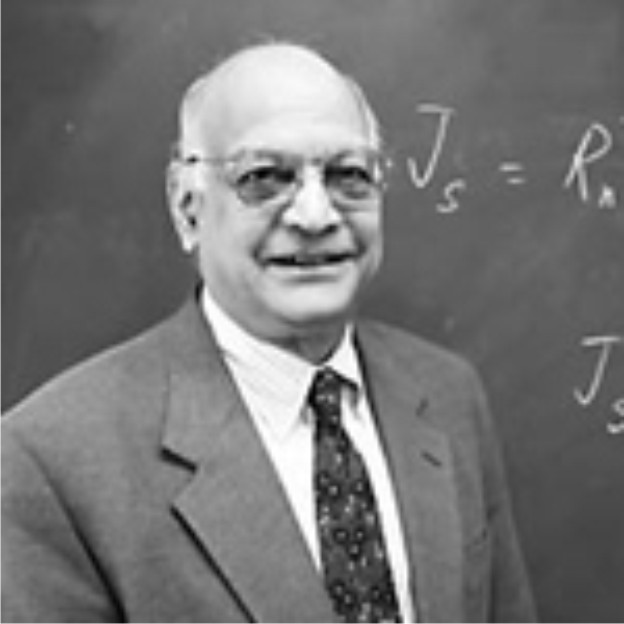 About
the speaker: Prof. Vinay Ambegaokar is currently
the Goldwain Smith Professor of Physics Emeritus, Cornell University.
He obtained his PhD in Theoretical Physics, from Carnegie Institute
of Technology, USA in 1960. Prof. Ambegaokar has received several
awards and honours like the Alfred P. Sloan Fellow, 1965-1967; medal
of the University of Helsinki, 1971; Fellow, American Physical Society,
1979; J. S. Guggenheim Fellow, 1983-84; medal of the College de
France, 1986; Humboldt Foundation Senior U. S. Scientist, 1986,
1990. About
the speaker: Prof. Vinay Ambegaokar is currently
the Goldwain Smith Professor of Physics Emeritus, Cornell University.
He obtained his PhD in Theoretical Physics, from Carnegie Institute
of Technology, USA in 1960. Prof. Ambegaokar has received several
awards and honours like the Alfred P. Sloan Fellow, 1965-1967; medal
of the University of Helsinki, 1971; Fellow, American Physical Society,
1979; J. S. Guggenheim Fellow, 1983-84; medal of the College de
France, 1986; Humboldt Foundation Senior U. S. Scientist, 1986,
1990.
His research interests are in the area of low temperature and condensed
matter physics. His current work focuses on some aspects of disordered
metallic conductors, on quantum information and its loss through
‘decoherence', and on mathematical ways of describing these
phenomena.
About the donor:
Prof. Jagadishwar Mahanty Lecture Series in Physics
has been instituted by Dr. Siddharth Mahanty in memory of his father,
Prof. Jagdishwar Mahanty, who was a faculty member in the Department
of Physics at IIT Kanpur from 1961-1972.
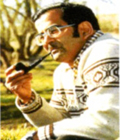 About
Professor Jagadishwar Mahanty: Prof. Mahanty was
born on 20th July 1932 in Puri, Orissa. After his MSc in Physics
from Calcutta University, he worked for several years at the National
Physical Laboratory. In 1956, he went to the University of Maryland,
USA for his doctoral degree. After completing his PhD in 1960 he
joined Punjab University, Chandigarh and subsequently joined the
Physics department of IIT Kanpur in 1961. He was instrumental in
shaping the Physics department during its infancy. He made important
contributions to condensed matter physics, particularly to the study
of many body physics, lattice dynamics, van-der-Waals interactions
and the electronic structure of solids. About
Professor Jagadishwar Mahanty: Prof. Mahanty was
born on 20th July 1932 in Puri, Orissa. After his MSc in Physics
from Calcutta University, he worked for several years at the National
Physical Laboratory. In 1956, he went to the University of Maryland,
USA for his doctoral degree. After completing his PhD in 1960 he
joined Punjab University, Chandigarh and subsequently joined the
Physics department of IIT Kanpur in 1961. He was instrumental in
shaping the Physics department during its infancy. He made important
contributions to condensed matter physics, particularly to the study
of many body physics, lattice dynamics, van-der-Waals interactions
and the electronic structure of solids.
He was the Head of the Physics department from 1967 to 1972. In
1971, Prof. Mahanty decided to concentrate on his own research and
gave up the administrative responsibility. In 1972, he joined the
prestigious Australian National University and superannuated from
there in July 1995 due to ill health.
Prof. Mahanty was an excellent physicist with a very modest and
kind personality. His helpful nature to both students and colleagues
was a great asset of his character. He was a warm and caring person
who is greatly missed by his family and friends.
TOP
Samsonov
Memorial Lecture: Prof. G. S. Upadhyaya gave a talk
titled “Sintering Research: Past, Present and Future”
on 1st March, 2013. In his talk Prof. Upadhyaya said that sintering
is a major step in forming material from particulates, starting
from ores, metals or composites. It can be performed without pressure
or under pressure. In his talk he discussed the former – material
forming without pressure. He said that pressureless sintering can
be again classified into solid state or liquid phase sintering.
There are many approaches for the theoretical analysis of solid
state sintering viz. scaling laws, analytical models, numerical
simulations, topological models, statistical models, phenomenological
equations and the electronic model for sintering. In his talk Prof.
Upadhyaya spoke more about the analytical models, which involve
three stages of sintering i.e. the initial, intermediate and final
stages. He said that in liquid phase sintering the mechanism involves
contact flattening and pore filling. Each one of these was explained
at length in his talk. He concluded his talk by explaining the sintering
aspects of nanostructured materials and said that in activated sintering,
the role of the electronic structures of the component atoms is
very crucial.
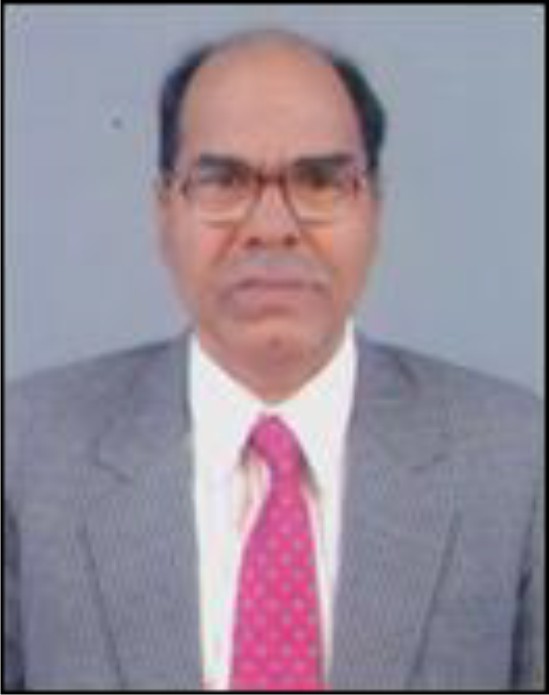 About
the Speaker: Prof. Gopal Shankar Upadhyaya joined
the department of Metallurgical Engineering (now Materials Science
and Engineering), IIT Kanpur in 1976 as Professor. Prior to that
he was Associate professor at the University of Roorkee. He obtained
his PhD from the Kiev Institute of Technology, Ukraine in 1969 under
the guidance of the internationally renowned Materials Scientist
Prof. G.V. Samsonov. Prof. Upadhyaya has published more than 300
papers and has authored/edited 16 books. He has served on the Advisory
Boards of practically all the major conferences and journals in
powder metallurgy. Prof. Upadhyaya retired from IIT Kanpur in 2001,
and currently resides in Varanasi. Prof. Upadhyaya himself has initiated
this lecture series in the memory of his mentor Professor G. V.
Samsonov. About
the Speaker: Prof. Gopal Shankar Upadhyaya joined
the department of Metallurgical Engineering (now Materials Science
and Engineering), IIT Kanpur in 1976 as Professor. Prior to that
he was Associate professor at the University of Roorkee. He obtained
his PhD from the Kiev Institute of Technology, Ukraine in 1969 under
the guidance of the internationally renowned Materials Scientist
Prof. G.V. Samsonov. Prof. Upadhyaya has published more than 300
papers and has authored/edited 16 books. He has served on the Advisory
Boards of practically all the major conferences and journals in
powder metallurgy. Prof. Upadhyaya retired from IIT Kanpur in 2001,
and currently resides in Varanasi. Prof. Upadhyaya himself has initiated
this lecture series in the memory of his mentor Professor G. V.
Samsonov.
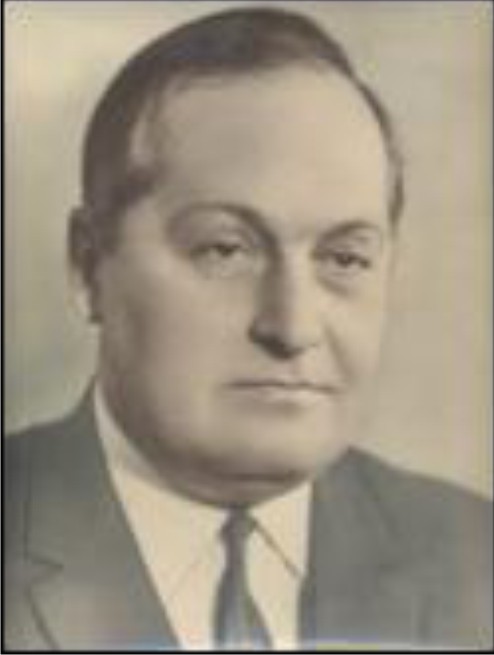 About
Professor G. V. Samsonov (1918-1975): Prof. Grigorii
Valentinovich Samsonov was born on 15th February 1918 in a town
near Leningrad (now St. Petersburg). After earning his first degree
at the Nonferrous Metals Institute in Moscow, he joined the Soviet
Navy. At the end of the Second World War, he was stationed in the
Soviet occupied zone of Austria. It was here he became interested
in extensive refractory metals and their compounds. After the cessation
of the war, Prof. Samsonov returned to Moscow and resumed his higher
studies and research under the guidance of Prof. M. A. Merson (Institute
of Steel and Alloys), a noted powder metallurgist of the then USSR.
After completion of his PhD degree, Prof. Samsonov joined the Institute
of Metalkeramika (powder metallurgy) in the Ukrainian Academy of
Science at Kiev as a senior scientist. The Institute was later renamed
“Institute of Materials Problem.” Within a few years,
he was elevated to the post of Deputy Director. Simultaneously,
he was invited to head the Powder Metallurgy Department of the Kiev
Institute of Technology. Prof. Samsonov made seminal contributions
to the structure-properties-processing-performance relations of
inorganic materials such as carbides, nitrides, borides, silicides,
germanides, selenides, phosphides. Prof. Samsonov authored nearly
1500 papers. He also authored/edited 50 books and monographs including
the seminal book “Configurational Model of Matter”.
He has mentored several students who are now spread throughout the
world. About
Professor G. V. Samsonov (1918-1975): Prof. Grigorii
Valentinovich Samsonov was born on 15th February 1918 in a town
near Leningrad (now St. Petersburg). After earning his first degree
at the Nonferrous Metals Institute in Moscow, he joined the Soviet
Navy. At the end of the Second World War, he was stationed in the
Soviet occupied zone of Austria. It was here he became interested
in extensive refractory metals and their compounds. After the cessation
of the war, Prof. Samsonov returned to Moscow and resumed his higher
studies and research under the guidance of Prof. M. A. Merson (Institute
of Steel and Alloys), a noted powder metallurgist of the then USSR.
After completion of his PhD degree, Prof. Samsonov joined the Institute
of Metalkeramika (powder metallurgy) in the Ukrainian Academy of
Science at Kiev as a senior scientist. The Institute was later renamed
“Institute of Materials Problem.” Within a few years,
he was elevated to the post of Deputy Director. Simultaneously,
he was invited to head the Powder Metallurgy Department of the Kiev
Institute of Technology. Prof. Samsonov made seminal contributions
to the structure-properties-processing-performance relations of
inorganic materials such as carbides, nitrides, borides, silicides,
germanides, selenides, phosphides. Prof. Samsonov authored nearly
1500 papers. He also authored/edited 50 books and monographs including
the seminal book “Configurational Model of Matter”.
He has mentored several students who are now spread throughout the
world.
|
TOP
| Institute
Lectures

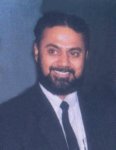 Prof.
Chaitanyamoy Ganguly, retired Distinguished Scientist,
Department of Atomic Energy (DAE), Government of India gave a talk
titled “Nuclear Fission Energy, a Sustainable and Environmental
friendly option for electricity – Challenges” on 1st
February 2013. Prof. Ganguly obtained his PhD in Metallurgical Engineering
from Bengal Engineering College, Shibpur. Dr. Ganguly has published
more than 250 research papers and has guided several PhD and MTech
students. He has served at the Bhabha Atomic Research Centre, Mumbai
as Head, Radiometallurgy Division and at the Nuclear Fuel Complex,
Hyderabad as Chairman and Chief Executive. He has also been the
Director of the Council of Scientific and Industrial Research (CSIR),
of Central Glass and Ceramic Research Institute (CGCRI), Kolkata
and was the Head, Nuclear Fuel Cycle and Materials Section at the
IAEA in Vienna. Prof. Ganguly has received many honours and awards
like the National Metallurgist Award of the Ministry of Steel and
Mines, the Tata Gold medal, the Kamani Gold Medal and the Binani
Gold Medal of the Indian Institute of Metals, the Market Research
Society of India (MRSI) medal and Vasvik Award. He is a Fellow of
the Indian National Science Academy, the Indian Academy of Science,
the Indian National Academy of Engineering, the Indian National
Academy of Science, the Institution of Engineers, the Indian Institute
of Metals and the Indian Institute of Ceramics. Prof. Ganguly was
conferred the Padma Shri in 2002. Prof.
Chaitanyamoy Ganguly, retired Distinguished Scientist,
Department of Atomic Energy (DAE), Government of India gave a talk
titled “Nuclear Fission Energy, a Sustainable and Environmental
friendly option for electricity – Challenges” on 1st
February 2013. Prof. Ganguly obtained his PhD in Metallurgical Engineering
from Bengal Engineering College, Shibpur. Dr. Ganguly has published
more than 250 research papers and has guided several PhD and MTech
students. He has served at the Bhabha Atomic Research Centre, Mumbai
as Head, Radiometallurgy Division and at the Nuclear Fuel Complex,
Hyderabad as Chairman and Chief Executive. He has also been the
Director of the Council of Scientific and Industrial Research (CSIR),
of Central Glass and Ceramic Research Institute (CGCRI), Kolkata
and was the Head, Nuclear Fuel Cycle and Materials Section at the
IAEA in Vienna. Prof. Ganguly has received many honours and awards
like the National Metallurgist Award of the Ministry of Steel and
Mines, the Tata Gold medal, the Kamani Gold Medal and the Binani
Gold Medal of the Indian Institute of Metals, the Market Research
Society of India (MRSI) medal and Vasvik Award. He is a Fellow of
the Indian National Science Academy, the Indian Academy of Science,
the Indian National Academy of Engineering, the Indian National
Academy of Science, the Institution of Engineers, the Indian Institute
of Metals and the Indian Institute of Ceramics. Prof. Ganguly was
conferred the Padma Shri in 2002.
For details visit:
http://www.iitk.ac.in/dord/institutelecture/2012/CGanguly.pdf
TOP
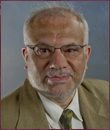 Dr.
Manvendra K. Dubey, Senior Scientist, Earth Systems
Observations, Los Alamos National Laboratory, USA gave a talk titled
“Chemistry, Carbon and Climate Science to Meet the 21st Century
Energy Challenge” on 12th February 2013. Dr. Dubey obtained
his PhD in chemical physics from Harvard University. For 16 years,
he has been at Los Alamos National Laboratory as a Climate Observations
Program Manager and the Climate Focus Lead. His project “Indo-US
Science Collaboration to Guide Air Quality and Climate Policy,”
in which IIT Kanpur is a leading player will expand state-of-the-art
climate and air-quality observational networks in India. Dr. Dubey
is an editor of Atmospheric Chemistry and Physics. He was an editor
for Geophysical Research Letters and helped the U. S. National Academies
review the US climate research plan. He is an active American Geophysical
Unit (AGU) and American Association for the Advancement of Science
(AAAS) member and has convened special sessions on timely topics
at the nexus of energy and environment. Dr.
Manvendra K. Dubey, Senior Scientist, Earth Systems
Observations, Los Alamos National Laboratory, USA gave a talk titled
“Chemistry, Carbon and Climate Science to Meet the 21st Century
Energy Challenge” on 12th February 2013. Dr. Dubey obtained
his PhD in chemical physics from Harvard University. For 16 years,
he has been at Los Alamos National Laboratory as a Climate Observations
Program Manager and the Climate Focus Lead. His project “Indo-US
Science Collaboration to Guide Air Quality and Climate Policy,”
in which IIT Kanpur is a leading player will expand state-of-the-art
climate and air-quality observational networks in India. Dr. Dubey
is an editor of Atmospheric Chemistry and Physics. He was an editor
for Geophysical Research Letters and helped the U. S. National Academies
review the US climate research plan. He is an active American Geophysical
Unit (AGU) and American Association for the Advancement of Science
(AAAS) member and has convened special sessions on timely topics
at the nexus of energy and environment.
For details visit:
http://www.iitk.ac.in/dord/institutelecture/2012/Manvendra_K_Dubey.pdf
TOP
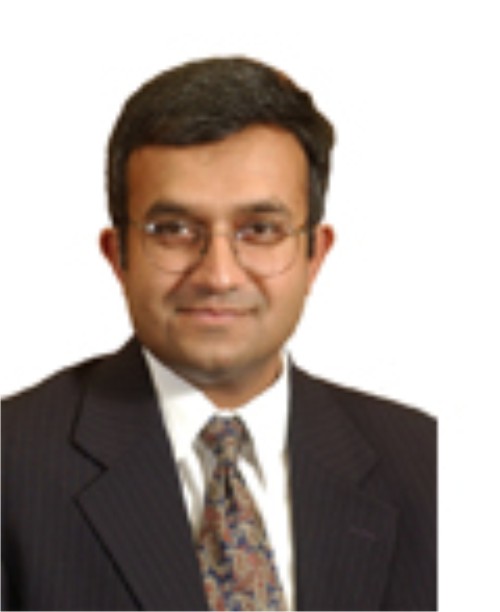 Prof.
Ananth Dodabalapur, Ashley H. Priddy Centennial
Professor, University of Texas at Austin, USA gave a talk titled
“Polymer and Printable Transistors: Recent Advances”
on 14th March, 2013. Dr. Dodabalapur obtained his PhD in Electrical
Engineering from the University of Texas at Austin in 1990. Since
1992 he has investigated various aspects of the physics and technology
of organic and polymer semiconductor devices. He has published more
than 150 articles in refereed journals and has 27 US patents. He
is a co-recipient of the 2002 National award for team innovation
of the American Chemical Society, and a co-recipient of an R&D
100 award for 2001. He has been with the University of Texas at
Austin since September, 2001 and is the Ashley H. Priddy Centennial
Professor in Engineering, and also holds the June and Gene Gillis
Endowed Faculty Fellowship. His present research includes organic
and inorganic thin-film transistors, chemical sensors, photovoltaics
and thin-film circuits. In 2003, he co-founded OrganicID, a company
that is investigating using printable polymer electronics to fabricate
low-cost RFID tags for the 13.56 MHz frequency. Prof.
Ananth Dodabalapur, Ashley H. Priddy Centennial
Professor, University of Texas at Austin, USA gave a talk titled
“Polymer and Printable Transistors: Recent Advances”
on 14th March, 2013. Dr. Dodabalapur obtained his PhD in Electrical
Engineering from the University of Texas at Austin in 1990. Since
1992 he has investigated various aspects of the physics and technology
of organic and polymer semiconductor devices. He has published more
than 150 articles in refereed journals and has 27 US patents. He
is a co-recipient of the 2002 National award for team innovation
of the American Chemical Society, and a co-recipient of an R&D
100 award for 2001. He has been with the University of Texas at
Austin since September, 2001 and is the Ashley H. Priddy Centennial
Professor in Engineering, and also holds the June and Gene Gillis
Endowed Faculty Fellowship. His present research includes organic
and inorganic thin-film transistors, chemical sensors, photovoltaics
and thin-film circuits. In 2003, he co-founded OrganicID, a company
that is investigating using printable polymer electronics to fabricate
low-cost RFID tags for the 13.56 MHz frequency.
For details visit:
http://www.iitk.ac.in/dord/institutelecture/2012/Prof_Ananth_Dodabalapur.pdf
|
TOP
|
Workshops,
Conferences and Meets

Symposium
on Security and Privacy: The Department of Computer
Science and Engineering organized a ‘Symposium on Security
and Privacy’ from 28th February to 2nd March, 2013. The objective
of this workshop was to:
1) bring together the student, faculty, and researcher community
in India to discuss the latest trend, and progress in the area of
security and privacy
2) expose the Indian fraternity of security and privacy to international
speakers and topics of work
3) develop a community of security and privacy researchers and students
in India.
The symposium had a keynote, talks, poster presentations and panel
discussions.
For details on the
symposium, speakers and talks please visit: http://www.cse.iitk.ac.in/users/sps2013/index.html
TOP
WINDY-2013,
a workshop on ‘Wind Tunnel Testing- Techniques and Applications’
was organized by the National Wind Tunnel Facility, IIT Kanpur,
from 22 – 23 March, 2013. The objective of the workshop was
to bring together professionals from the large scale wind tunnel
facilities in the country and the tunnel users from the industry,
R&D and academia to share the advances in testing techniques
and practices. This meeting tried to provide a national forum to
discuss strategies towards sustained developmental activities in
wind tunnel testing techniques, to present experimental research
in aerodynamics and to plan such annual events.
The two day workshop covered modern wind tunnel testing practices
in various facilities across the country in the aeronautical and
non-aeronautical areas. Academicians, scientists, and engineers
working in areas related to WT testing, wind tunnel users from various
organizations like DRDO, CSIR, ISRO, DST, HAL, aerospace, automobile,
and civil engineering industries and PG Students working in WT testing
areas participated in the workshop.
For program details and other information please visit the
workshop website: http://www.iitk.ac.in/aero/home/index.php/latest-news/87-latest-events/152-windy-2013
About the National
Wind Tunnel Facility (NWTF) at IIT Kanpur: NWTF is a 3m x
2.25m low speed closed circuit wind tunnel with state-of-the-art
equipment and instrumentation. It was established at IIT Kanpur,
as a national facility, to meet the national needs in the areas
of aeronautical and non-aeronautical related R&D work. NWTF
is equipped with modern instrumentation and control systems, supplemented
by specialized equipment. The facility is available for experimental
studies and developmental activities, for applications in aerospace
and defence industries,for the civil engineering design industry,
for the automotive industry, for air pollutant dispersion studies,
and for wind engineering.


TOP
Obituary

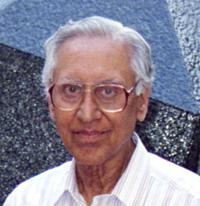 Professor
P. T. Narasimhan (former faculty member, Department of Chemistry)
passed away on May 3rd, 2013 in Sunnyvale, California, USA after
a long illness. He was 84 years old. Professor
P. T. Narasimhan (former faculty member, Department of Chemistry)
passed away on May 3rd, 2013 in Sunnyvale, California, USA after
a long illness. He was 84 years old.
Prof. Narasimhan, affectionately known as PTN to his many colleagues
and students, was born in 1928 in Cuddalore, India. He obtained
his PhD in physical chemistry at the Indian Institute of Science,
Bangalore. He did post-graduate work at Michigan State University
in the US and subsequently held faculty positions at Michigan State
University, University of Illinois and Columbia University in the
United States. He returned to India in 1962 as one of the early
faculty members at the Indian Institute of Technology, Kanpur. Over
the next twenty five years, he established himself not only as a
dedicated teacher but also as a leader in the fields of magnetic
resonance and theoretical physical chemistry. He was instrumental
in building IIT Kanpur into one of the preeminent centers of academic
research in the basic sciences. After his retirement from IIT Kanpur
in 1987, Prof. Narasimhan moved to the United States and began a
new phase of his research by looking into novel medical and biological
applications of magnetic resonance spectroscopy, first in association
with the Huntington Memorial Research Institute and later at the
California Institute of Technology (Caltech).
Prof. Narasimhan was accorded numerous recognitions for his contributions
to science. He was elected Fellow of the Indian Academy of Sciences
(1970), Fellow of the Indian National Academy of Sciences (1972),
also serving as their General Secretary from 1977-1981) and Fellow
of the National Academy of Sciences, India (1973). He was awarded
the prestigious Sri Shanti Swarup Bhatnagar award in the Chemical
Sciences (1970). In 2013, in recognition of his services he was
awarded the title of Institute Fellow by the Board of Directors
of IIT, Kanpur. Throughout his career, Prof. Narasimhan also enjoyed
a reputation as an inspiring teacher and sought after mentor to
scores of young undergraduate and graduate students. Outside science,
music was Prof. Narasimhan’s abiding passion- he was a strong
supporter of Indian Classical music and was himself an accomplished
flautist in the Indian Carnatic musical tradition, performing in
India and later on in the United States.
Prof. Narasimhan is survived by his wife Leena and their children
Dr. Nalini Murdter, Dr. Vikram Narasimhan and Dr. Nandini Narayan
and six grandchildren.
TOP
|
First
Alumni Convention of IIT Kanpur

|
The
first Alumni Convention of IIT Kanpur took
place in IIT Delhi on 3rd March, 2013. The aim of the Alumni Convention
was to have a common platform where IITK alumni from all over the
world would be able to get-together to meet and interact with each
other and explore how the Alumni Association can be more vibrant,
relevant and useful for the alumni, for IIT Kanpur and for the nation.
The convention was organized by the Alumni Association, IIT Kanpur
- Outer Delhi Chapter on behalf of the Alumni Association IIT Kanpur.
Dr. D. Subbarao, Governor of the Reserve Bank of India and a distinguished
alumnus of IIT Kanpur, was the Chief Guest. Nearly 600 alumni and
30 retired faculty of the Institute took part in the convention.
The function was graced by technocrats, entrepreneurs, civil servants,
scientists, academicians and senior corporate leaders, Padma Award
winners of 2013 - Prof. Ashok Sen (MSc2/PHY/78), Prof. Sanjay G.
Dhande (PhD/ME/75), Prof. Manindra Agrawal (BT/PhD/CSE/86/92) and
Prof. K. Vijay Raghvan (BT/MT/CHE/75/77) of 2013, Prof. Indranil
Manna (Director, IIT Kanpur) and Prof. R. K. Shevgaonkar (Director,
IIT Delhi), and many distinguished and eminent IIT Kanpur alumni.
For more details please visit:
http://www.iitkaaconvention.org/


|
TOP
Achievements

Faculty
Honours

Dr. Raja Angamuthu,
Department of Chemistry, received the young scientist research
award from the Board of Research in Nuclear Sciences (BRNS) for
the year 2013.
Prof. Amalendu Chandra, Department
of Chemistry, had been awarded the prestigious J. C. Bose National
Fellowship by the Department of Science and Technology, Government
of India.
Prof. Debashish Chowdhury,
Department of Physics, has been awarded the prestigious J. C.
Bose National Fellowship by the Department of Science and Technology,
Government of India.
Prof. Sanjay G. Dhande,
former Director, IIT Kanpur has been appointed a member of the
prestigious National Security Advisory Board (NSAB) by the Government
of India.
Dr Yogesh Joshi,
Department of Chemical Engineering has been awarded the 2012 NASI
Scopus Young Scientist Awards in Engineering.
Prof. Sanjay Mittal,
Department of Aerospace Engineering, has been awarded the prestigious
J. C. Bose National Fellowship by the Department of Science and
Technology, Government of India.
Dr. Nisanth N. Nair
has been awarded the 2013 Indian National Science Academy (INSA)
Medal for Young Scientist.
Dr. Pankaj Wahi
has been awarded the 2013 Indian National Science Academy (INSA)
Medal for Young Scientist.
Prof. Rajeev Sangal, Department
of Electrical Engineering, has been appointed as the director
of IIT BHU (Banaras Hindu University). Earlier he was director-cum-vice
chancellor of IIIT Hyderabad.
Prof. Sandeep Verma,
Department of Chemistry, has been awarded the prestigious J. C.
Bose National Fellowship by the Department of Science and Technology,
Government of India.
|
TOP
Student
Events

Techkriti-2013

Techkriti
is an annual inter collegiate technical and entrepreneurship festival
of IIT Kanpur. The 19th Techkriti of IITK was held from March
14th to 17th. The opening ceremony held on 14th March was graced
by Mr. Michael Foreman (NASA astronaut) who was the guest of honour.
The Chief Guest for this function was the noted physicist Sri
R. Chidambaram, who is currently serving as the principal scientific
adviser to the Government of India. Prof. Indranil Manna (Director),
was also present on the occasion.
Since its inception in 1995, Techkriti has grown to become one
of Asia’s largest techno-entrepreneurial festivals. This
year’s theme of Techkriti was ‘Fixing the Planet’.
Many trend setting initiatives were taken to make this year’s
Techkriti Asia's first carbon neutral festival. More than 200
nature enthusiasts participated in an event in October 2012, planting
hundreds of saplings in the IIT Kanpur campus, so that by the
time the festival began the saplings would have been nurtured
into young trees, thus off-setting any pollution created during
the festival and reducing its carbon footprint to zero.
Techkriti 2013 had talks by Mr. Michael Foreman, Mr. Mahesh Murthy
(Venture Capitalist), Prof. Robert J. Aumann (Nobel Laureate,
Economics), Prof. John Mather (Nobel Laureate, Physics), Mr. Marshall
Strabala (Architect of Burj Khalifa and Shanghai Tower), Mr. Boaz
Almog (Quantum Researcher), Mr. Anil Rajvanshi (Director, Nimbkar
Agricultural Research Institute) and Mr. Jeff Lieberman (host
of Time Warp, Discovery Channel and MIT Roboticist).
Many competitions such as ‘Corporate Vendetta’ (aimed
to recreate the milieu of a corporate board room), ‘Battlefield’
(the case study competition featuring three Harvard Business Review
(HBR) cases), ‘Stocksim’ (real-time simulation of
the stock market), ‘Start Up Showcase’ (exhibited
young and enthusiastic startups from all over the country), IHPC
(International High Performance Computing contest), Global Robotics
Challenge and international programming competitions, as well
as ‘Jugaad’ (innovation in a desi style), were held.
In addition there was an array of workshops which provided a platform
to have hands-on experience of robotics, IT, electronics, aero-modelling,
astronomy, marketing, management and consultancy. Techkriti-2013
also offered a potpourri of fun games and events like World Sudoku
Championship, Zorbing, Sumo Wrestling, Paintball and Human Foosball.
This year vintage cars were on display which attracted huge crowds.
Apart from the above events, there was
also one called ‘India Innovators’, where some pioneers
of innovation like Mr. Bindeshwar Pathak (Founder, Sulabh International)
and Mr. Udbhav Bharali (Rural Innovator) spoke about their remarkable
inventions and initiatives.
Techkrit-2013 also had panel discussions,
(http://techkriti.org/efactor/students/Panel_Discussions.php),
elevator pitch - a short summary used to quickly and simply define
a person, profession, product, service, organization or event,
(http://techkriti.org/efactor/students/Elevator_Pitch.php) and
exhibitions - presenting the world's most advanced and recent
technologies built in foremost research facilities like ETH Zurich,
Cornell University and Aldebran Robotics, among many others (http://techkriti.org/exhibitions/techoffshore/).
On the final day of Techkriti there was
a live concert by Bollywood singer Mr. Sukhwinder Singh of "jay
ho", "chak de” fame. The highlight of this year’s
Techkriti was the shattering of the Guinness world record for
mass solving of Rubik’s cube. Close to 1,900 students participated
to make the world record in 12 minutes time to enter their name
in the Guniness Book of World Records. The previous world record
was made in London where 1,400 persons had solved the cube.

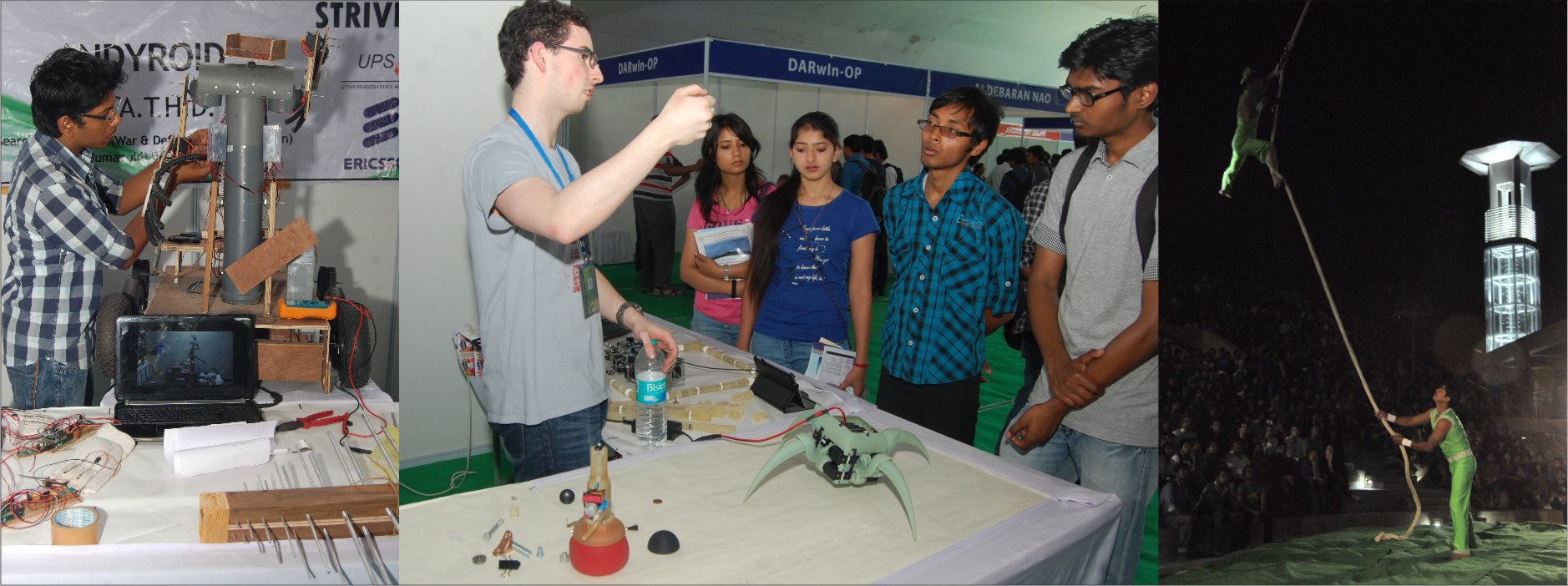

|
TOP
Published
by: Office of the Dean, Resources and Alumni, Indian Institute of Technology
Kanpur, Kanpur-208 016, India
Phone: + 91-512-259
7635/ 7542 Fax: +91-512- 259 0353 Email – dora@iitk.ac.in, arra@iitk.ac.in
|

![]()
![]()





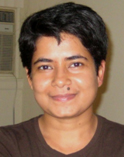 Dr.
Bushra Ateeq has joined the Department of Biological
Sciences and Bioengineering. She obtained her PhD from Aligarh Muslim
University, Aligarh.
Dr.
Bushra Ateeq has joined the Department of Biological
Sciences and Bioengineering. She obtained her PhD from Aligarh Muslim
University, Aligarh. 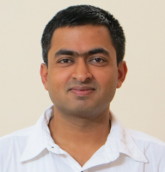 Dr.
Anand Kumar Jha has joined the Department of Physics.
He obtained his PhD from University of Rochester, USA.
Dr.
Anand Kumar Jha has joined the Department of Physics.
He obtained his PhD from University of Rochester, USA.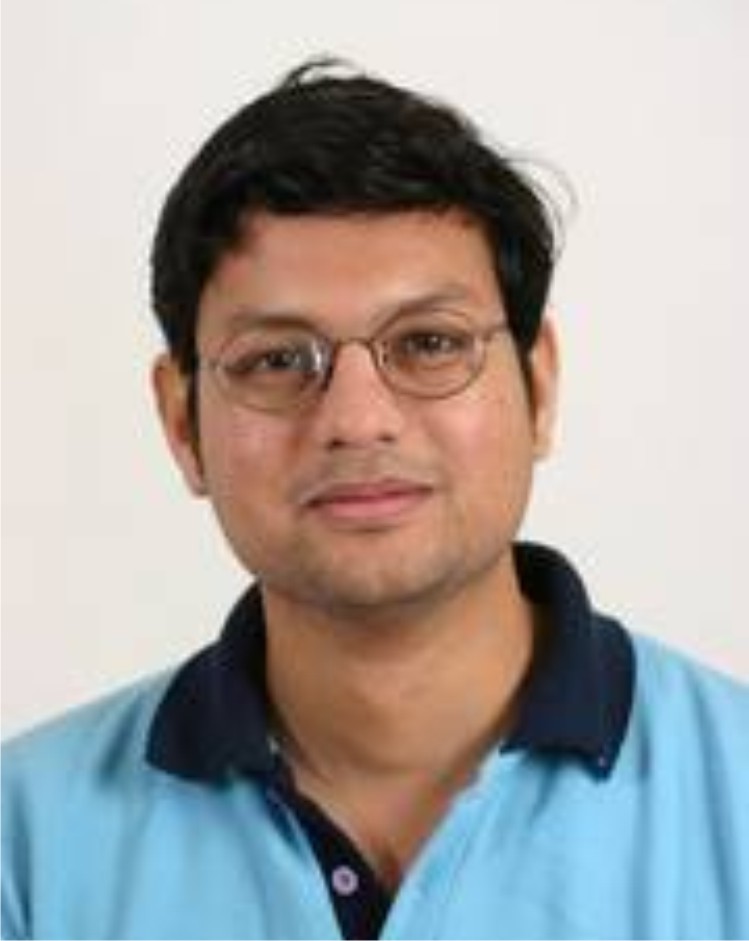 Dr.
Nitin Saxena has joined the Department of Computer
Science and Engineering. He obtained his PhD from IIT Kanpur.
Dr.
Nitin Saxena has joined the Department of Computer
Science and Engineering. He obtained his PhD from IIT Kanpur. About
the Speaker: Prof. Vijay Raghavan obtained his BTech
in chemical engineering from IIT Kanpur in 1975 and obtained his
PhD in Molecular Biology from Tata Institute in Bombay in 1983.
After working in California Institute of Technology, USA as a Postdoctoral
Research Fellow and Senior Research Fellow, he returned to India
in 1988 and worked with Obaid Siddiqi and other colleagues to start
the National Centre for Biological Sciences (NCBS), which has developed
into an internationally recognized laboratory for modern biology.
NCBS has worked with the Indian Government to expand its campus
to add in STEM (science, technology, engineering, and mathematics),
a major new institute for regenerative biology of which Prof. Raghavan
was the interim Director. He also developed a research program in
muscle and neural development using Drosophila. The Vijay Raghavan
lab embarked on a study of motor neuron development and differentiation
in collaboration with Prof. Darren Williams at King’s College
London, the result of which led to an understanding of the birth
order and dendritic positioning in the central nervous system. His
laboratory continues to work in this area, in integrating the emergence
of neural connectivity with function.
About
the Speaker: Prof. Vijay Raghavan obtained his BTech
in chemical engineering from IIT Kanpur in 1975 and obtained his
PhD in Molecular Biology from Tata Institute in Bombay in 1983.
After working in California Institute of Technology, USA as a Postdoctoral
Research Fellow and Senior Research Fellow, he returned to India
in 1988 and worked with Obaid Siddiqi and other colleagues to start
the National Centre for Biological Sciences (NCBS), which has developed
into an internationally recognized laboratory for modern biology.
NCBS has worked with the Indian Government to expand its campus
to add in STEM (science, technology, engineering, and mathematics),
a major new institute for regenerative biology of which Prof. Raghavan
was the interim Director. He also developed a research program in
muscle and neural development using Drosophila. The Vijay Raghavan
lab embarked on a study of motor neuron development and differentiation
in collaboration with Prof. Darren Williams at King’s College
London, the result of which led to an understanding of the birth
order and dendritic positioning in the central nervous system. His
laboratory continues to work in this area, in integrating the emergence
of neural connectivity with function.  About
the Donor: The PetroTel Distinguished Lecture series
in Chemical Engineering at IIT Kanpur has been made possible by
an endowment from Dr. Anil K. Chopra (B. Tech/ChE/IITK/1976 and
recipient of the IITK Distinguished Alumnus Award, 2010). Dr. Chopra
obtained his PhD from the University of Houston, USA, in 1982. Currently,
Dr. Chopra is the President, CEO and Chairman of PetroTel Inc.,
USA
About
the Donor: The PetroTel Distinguished Lecture series
in Chemical Engineering at IIT Kanpur has been made possible by
an endowment from Dr. Anil K. Chopra (B. Tech/ChE/IITK/1976 and
recipient of the IITK Distinguished Alumnus Award, 2010). Dr. Chopra
obtained his PhD from the University of Houston, USA, in 1982. Currently,
Dr. Chopra is the President, CEO and Chairman of PetroTel Inc.,
USA About
the Speaker: Prof. Debasis Kundu
received his BStat in 1982 and MStat in 1984 from the Indian Statistical
Institute. He obtained his PhD in 1989 from Pennsylvania State University,
after which he worked for a year at the University of Texas at Dallas
as a tenure track assistant professor, before joining IIT Kanpur
in 1990. Prof. Kundu is currently the Arun Kumar Chair Professor
and is also the Head of the Department of Mathematics and Statistics.
His research interests include statistical signal processing, univariate
and multivariate probability distributions, statistical computing
and data analysis. Prof. Kundu is a Fellow of the Indian National
Academy of Sciences. He has authored more than 200 research publications
and two books. He is on the editorial board of four international
journals in the field of Statistics.
About
the Speaker: Prof. Debasis Kundu
received his BStat in 1982 and MStat in 1984 from the Indian Statistical
Institute. He obtained his PhD in 1989 from Pennsylvania State University,
after which he worked for a year at the University of Texas at Dallas
as a tenure track assistant professor, before joining IIT Kanpur
in 1990. Prof. Kundu is currently the Arun Kumar Chair Professor
and is also the Head of the Department of Mathematics and Statistics.
His research interests include statistical signal processing, univariate
and multivariate probability distributions, statistical computing
and data analysis. Prof. Kundu is a Fellow of the Indian National
Academy of Sciences. He has authored more than 200 research publications
and two books. He is on the editorial board of four international
journals in the field of Statistics. About
the Donor: Prof. Chintamani Nagesa Ramachandra Rao
was born on June 30, 1934 in Bangalore. He completed his PhD in
1958 from Purdue University. From 1963-76, he was a Professor of
Chemistry at IITK. From 1984-89, he was the Director of IISC Bangalore.
Dr. Rao has published more than 45 books and 1500 research papers
with more than 42,000 total citations. He was appointed as Chair
of the Scientific Advisory Council to the Indian Prime Minister
in 2005. He has won several international prizes and is a foreign
member of the US National Academy of Sciences, the American Academy
of Arts and Sciences and of the Royal Society (London). He has also
been given the high honors of Padma Shri and Padma Vibhushan by
the
About
the Donor: Prof. Chintamani Nagesa Ramachandra Rao
was born on June 30, 1934 in Bangalore. He completed his PhD in
1958 from Purdue University. From 1963-76, he was a Professor of
Chemistry at IITK. From 1984-89, he was the Director of IISC Bangalore.
Dr. Rao has published more than 45 books and 1500 research papers
with more than 42,000 total citations. He was appointed as Chair
of the Scientific Advisory Council to the Indian Prime Minister
in 2005. He has won several international prizes and is a foreign
member of the US National Academy of Sciences, the American Academy
of Arts and Sciences and of the Royal Society (London). He has also
been given the high honors of Padma Shri and Padma Vibhushan by
the About
the speaker: Prof. Vinay Ambegaokar is currently
the Goldwain Smith Professor of Physics Emeritus, Cornell University.
He obtained his PhD in Theoretical Physics, from Carnegie Institute
of Technology, USA in 1960. Prof. Ambegaokar has received several
awards and honours like the Alfred P. Sloan Fellow, 1965-1967; medal
of the University of Helsinki, 1971; Fellow, American Physical Society,
1979; J. S. Guggenheim Fellow, 1983-84; medal of the College de
France, 1986; Humboldt Foundation Senior U. S. Scientist, 1986,
1990.
About
the speaker: Prof. Vinay Ambegaokar is currently
the Goldwain Smith Professor of Physics Emeritus, Cornell University.
He obtained his PhD in Theoretical Physics, from Carnegie Institute
of Technology, USA in 1960. Prof. Ambegaokar has received several
awards and honours like the Alfred P. Sloan Fellow, 1965-1967; medal
of the University of Helsinki, 1971; Fellow, American Physical Society,
1979; J. S. Guggenheim Fellow, 1983-84; medal of the College de
France, 1986; Humboldt Foundation Senior U. S. Scientist, 1986,
1990. About
Professor Jagadishwar Mahanty: Prof. Mahanty was
born on 20th July 1932 in Puri, Orissa. After his MSc in Physics
from Calcutta University, he worked for several years at the National
Physical Laboratory. In 1956, he went to the University of Maryland,
USA for his doctoral degree. After completing his PhD in 1960 he
joined Punjab University, Chandigarh and subsequently joined the
Physics department of IIT Kanpur in 1961. He was instrumental in
shaping the Physics department during its infancy. He made important
contributions to condensed matter physics, particularly to the study
of many body physics, lattice dynamics, van-der-Waals interactions
and the electronic structure of solids.
About
Professor Jagadishwar Mahanty: Prof. Mahanty was
born on 20th July 1932 in Puri, Orissa. After his MSc in Physics
from Calcutta University, he worked for several years at the National
Physical Laboratory. In 1956, he went to the University of Maryland,
USA for his doctoral degree. After completing his PhD in 1960 he
joined Punjab University, Chandigarh and subsequently joined the
Physics department of IIT Kanpur in 1961. He was instrumental in
shaping the Physics department during its infancy. He made important
contributions to condensed matter physics, particularly to the study
of many body physics, lattice dynamics, van-der-Waals interactions
and the electronic structure of solids. About
the Speaker: Prof. Gopal Shankar Upadhyaya joined
the department of Metallurgical Engineering (now Materials Science
and Engineering), IIT Kanpur in 1976 as Professor. Prior to that
he was Associate professor at the University of Roorkee. He obtained
his PhD from the Kiev Institute of Technology, Ukraine in 1969 under
the guidance of the internationally renowned Materials Scientist
Prof. G.V. Samsonov. Prof. Upadhyaya has published more than 300
papers and has authored/edited 16 books. He has served on the Advisory
Boards of practically all the major conferences and journals in
powder metallurgy. Prof. Upadhyaya retired from IIT Kanpur in 2001,
and currently resides in Varanasi. Prof. Upadhyaya himself has initiated
this lecture series in the memory of his mentor Professor G. V.
Samsonov.
About
the Speaker: Prof. Gopal Shankar Upadhyaya joined
the department of Metallurgical Engineering (now Materials Science
and Engineering), IIT Kanpur in 1976 as Professor. Prior to that
he was Associate professor at the University of Roorkee. He obtained
his PhD from the Kiev Institute of Technology, Ukraine in 1969 under
the guidance of the internationally renowned Materials Scientist
Prof. G.V. Samsonov. Prof. Upadhyaya has published more than 300
papers and has authored/edited 16 books. He has served on the Advisory
Boards of practically all the major conferences and journals in
powder metallurgy. Prof. Upadhyaya retired from IIT Kanpur in 2001,
and currently resides in Varanasi. Prof. Upadhyaya himself has initiated
this lecture series in the memory of his mentor Professor G. V.
Samsonov. About
Professor G. V. Samsonov (1918-1975): Prof. Grigorii
Valentinovich Samsonov was born on 15th February 1918 in a town
near Leningrad (now St. Petersburg). After earning his first degree
at the Nonferrous Metals Institute in Moscow, he joined the Soviet
Navy. At the end of the Second World War, he was stationed in the
Soviet occupied zone of Austria. It was here he became interested
in extensive refractory metals and their compounds. After the cessation
of the war, Prof. Samsonov returned to Moscow and resumed his higher
studies and research under the guidance of Prof. M. A. Merson (Institute
of Steel and Alloys), a noted powder metallurgist of the then USSR.
After completion of his PhD degree, Prof. Samsonov joined the Institute
of Metalkeramika (powder metallurgy) in the Ukrainian Academy of
Science at Kiev as a senior scientist. The Institute was later renamed
“Institute of Materials Problem.” Within a few years,
he was elevated to the post of Deputy Director. Simultaneously,
he was invited to head the Powder Metallurgy Department of the Kiev
Institute of Technology. Prof. Samsonov made seminal contributions
to the structure-properties-processing-performance relations of
inorganic materials such as carbides, nitrides, borides, silicides,
germanides, selenides, phosphides. Prof. Samsonov authored nearly
1500 papers. He also authored/edited 50 books and monographs including
the seminal book “Configurational Model of Matter”.
He has mentored several students who are now spread throughout the
world.
About
Professor G. V. Samsonov (1918-1975): Prof. Grigorii
Valentinovich Samsonov was born on 15th February 1918 in a town
near Leningrad (now St. Petersburg). After earning his first degree
at the Nonferrous Metals Institute in Moscow, he joined the Soviet
Navy. At the end of the Second World War, he was stationed in the
Soviet occupied zone of Austria. It was here he became interested
in extensive refractory metals and their compounds. After the cessation
of the war, Prof. Samsonov returned to Moscow and resumed his higher
studies and research under the guidance of Prof. M. A. Merson (Institute
of Steel and Alloys), a noted powder metallurgist of the then USSR.
After completion of his PhD degree, Prof. Samsonov joined the Institute
of Metalkeramika (powder metallurgy) in the Ukrainian Academy of
Science at Kiev as a senior scientist. The Institute was later renamed
“Institute of Materials Problem.” Within a few years,
he was elevated to the post of Deputy Director. Simultaneously,
he was invited to head the Powder Metallurgy Department of the Kiev
Institute of Technology. Prof. Samsonov made seminal contributions
to the structure-properties-processing-performance relations of
inorganic materials such as carbides, nitrides, borides, silicides,
germanides, selenides, phosphides. Prof. Samsonov authored nearly
1500 papers. He also authored/edited 50 books and monographs including
the seminal book “Configurational Model of Matter”.
He has mentored several students who are now spread throughout the
world.




 Professor
P. T. Narasimhan (former faculty member, Department of Chemistry)
passed away on May 3rd, 2013 in Sunnyvale, California, USA after
a long illness. He was 84 years old.
Professor
P. T. Narasimhan (former faculty member, Department of Chemistry)
passed away on May 3rd, 2013 in Sunnyvale, California, USA after
a long illness. He was 84 years old.



